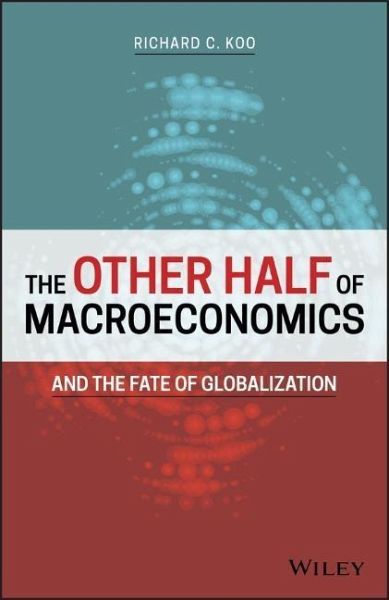
The Other Half of Macroeconomics and the Fate of Globalization
Versandkostenfrei!
Versandfertig in 2-4 Wochen
43,99 €
inkl. MwSt.
Weitere Ausgaben:

PAYBACK Punkte
22 °P sammeln!
Get a new perspective from the 'other half' of macroeconomicsThe failure of the vast majority of economists in government, academia and the private sector to predict either the post-2008 Great Recession or the degree of its severity has raised serious credibility issues for the profession. The repeated failures of central banks and other policymakers in all advanced countries to meet their inflation or growth targets in spite of astronomical monetary easing, have left the public rightfully suspicious of the establishment and its economists.The Other Half of Macroeconomics and the Fate of Globa...
Get a new perspective from the 'other half' of macroeconomics
The failure of the vast majority of economists in government, academia and the private sector to predict either the post-2008 Great Recession or the degree of its severity has raised serious credibility issues for the profession. The repeated failures of central banks and other policymakers in all advanced countries to meet their inflation or growth targets in spite of astronomical monetary easing, have left the public rightfully suspicious of the establishment and its economists.
The Other Half of Macroeconomics and the Fate of Globalization elucidates what was missing in economics all along and what changes are needed to make the profession relevant to the economic challenges of today. Once the other half of macroeconomics is understood both as a post-bubble phenomenon and as a phase of post-industrial economies, it should be possible for policy makers to devise appropriate measures to overcome difficulties advanced countries are facing today such as stagnation and income inequality.
_ Shows how it's possible to devise appropriate policy response to slow wage and productivity growth in these economies
_ Demonstrates that the effectiveness of monetary and fiscal policy changes as an economy undergoes different stages of development
_ Argues that tax rules, regulations and even educational system must be revised to match the need of pursued (by emerging nations) countries
_ Explains the 200-year process of economic development and where that process is taking all of us
Inside, Richard C. Koo offers a completely new way of looking at the economic predicament of advanced countries today.
The failure of the vast majority of economists in government, academia and the private sector to predict either the post-2008 Great Recession or the degree of its severity has raised serious credibility issues for the profession. The repeated failures of central banks and other policymakers in all advanced countries to meet their inflation or growth targets in spite of astronomical monetary easing, have left the public rightfully suspicious of the establishment and its economists.
The Other Half of Macroeconomics and the Fate of Globalization elucidates what was missing in economics all along and what changes are needed to make the profession relevant to the economic challenges of today. Once the other half of macroeconomics is understood both as a post-bubble phenomenon and as a phase of post-industrial economies, it should be possible for policy makers to devise appropriate measures to overcome difficulties advanced countries are facing today such as stagnation and income inequality.
_ Shows how it's possible to devise appropriate policy response to slow wage and productivity growth in these economies
_ Demonstrates that the effectiveness of monetary and fiscal policy changes as an economy undergoes different stages of development
_ Argues that tax rules, regulations and even educational system must be revised to match the need of pursued (by emerging nations) countries
_ Explains the 200-year process of economic development and where that process is taking all of us
Inside, Richard C. Koo offers a completely new way of looking at the economic predicament of advanced countries today.



